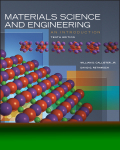
Materials Science And Engineering
10th Edition
ISBN: 9781119405498
Author: Callister, William D., Jr, RETHWISCH, David G., Jr., 1940- Author.
Publisher: Wiley,
expand_more
expand_more
format_list_bulleted
Question
Chapter 9, Problem 26QAP
(a)
To determine
The volume fraction of the phases of Copper-Zinc alloy.
(b)
To determine
The volume fraction of the phases of Lead-Tin alloy.
(c)
To determine
The volume fraction of the phases of Silver-Copper alloy.
Expert Solution & Answer
Want to see the full answer?
Check out a sample textbook solution
Students have asked these similar questions
1. Create a Person.java file. Implement the public Person and Student classes in Person.java, including all the variables and methods in
the UMLS.
Person
-name: String
-street: String
-city: String
+Person(String name, String, street, String, city)
+getName(): String
+setName(String name): void
+getStreet(): String
+setStreet(String street): void
+getCity(): String
+setCity(String City): void
+toString(): String
Student
-Id: int
+Person(String name, String, street, String, city, int Id)
+getId(): int
+setId(int Id): void
+toString(): String
2. Create a StudentTest.java file. Implement a public StudentTest class with a main method. In the main method, create one student
object and print the object using System.out.println().
Your printing result must follow the example output:
name: Mike, street: Morris Ave, city: Union, Id: 1000
Hint: You need to modify the toString methods in the Student class and Person class!
Solve, use engineering economic tables
Solve, use engineering economic tables
Chapter 9 Solutions
Materials Science And Engineering
Ch. 9 - Prob. 1QAPCh. 9 - Prob. 2QAPCh. 9 - Prob. 3QAPCh. 9 - Prob. 4QAPCh. 9 - Prob. 5QAPCh. 9 - Prob. 6QAPCh. 9 - Prob. 7QAPCh. 9 - Prob. 8QAPCh. 9 - Prob. 9QAPCh. 9 - Prob. 10QAP
Ch. 9 - Prob. 11QAPCh. 9 - Prob. 12QAPCh. 9 - Prob. 13QAPCh. 9 - Prob. 14QAPCh. 9 - Prob. 15QAPCh. 9 - Prob. 16QAPCh. 9 - Prob. 17QAPCh. 9 - Prob. 18QAPCh. 9 - Prob. 19QAPCh. 9 - Prob. 20QAPCh. 9 - Prob. 21QAPCh. 9 - Prob. 22QAPCh. 9 - Prob. 23QAPCh. 9 - Prob. 25QAPCh. 9 - Prob. 26QAPCh. 9 - Prob. 27QAPCh. 9 - Prob. 28QAPCh. 9 - Prob. 29QAPCh. 9 - Prob. 30QAPCh. 9 - Prob. 31QAPCh. 9 - Prob. 32QAPCh. 9 - Prob. 33QAPCh. 9 - Prob. 35QAPCh. 9 - Prob. 36QAPCh. 9 - Prob. 37QAPCh. 9 - Prob. 38QAPCh. 9 - Prob. 39QAPCh. 9 - Prob. 40QAPCh. 9 - Prob. 41QAPCh. 9 - Prob. 42QAPCh. 9 - Prob. 43QAPCh. 9 - Prob. 44QAPCh. 9 - Prob. 45QAPCh. 9 - Prob. 46QAPCh. 9 - Prob. 47QAPCh. 9 - Prob. 48QAPCh. 9 - Prob. 49QAPCh. 9 - Prob. 50QAPCh. 9 - Prob. 51QAPCh. 9 - Prob. 52QAPCh. 9 - Prob. 53QAPCh. 9 - Prob. 54QAPCh. 9 - Prob. 55QAPCh. 9 - Prob. 56QAPCh. 9 - Prob. 57QAPCh. 9 - Prob. 58QAPCh. 9 - Prob. 59QAPCh. 9 - Prob. 60QAPCh. 9 - Prob. 61QAPCh. 9 - Prob. 62QAPCh. 9 - Prob. 63QAPCh. 9 - Prob. 64QAPCh. 9 - Prob. 65QAPCh. 9 - Prob. 66QAPCh. 9 - Prob. 67QAPCh. 9 - Prob. 68QAPCh. 9 - Prob. 69QAPCh. 9 - Prob. 70QAPCh. 9 - Prob. 71QAPCh. 9 - Prob. 72QAPCh. 9 - Prob. 1FEQPCh. 9 - Prob. 2FEQPCh. 9 - Prob. 3FEQPCh. 9 - Prob. 4FEQP
Knowledge Booster
Similar questions
- Convert this question to Subroutines L1, L2, ORG 100 SKI BUN L1 INP OUT STA CTR CLA // Check input operation ready // Loop back to L1 location // Enter counter (-10) to AC // display counter operand // Store counter in CTR // Clear AC STA LOCI // Clear content of location LOC ISZ LOC ISZ CTR BUN L2 // Go to next Address // Check loop duration // Loop back to L2 location // End program HLT CTR, HEX 0 LOC, HEX 0150 ENDarrow_forwardplease show all workarrow_forwardDesign the following Digital circuit in Verilog. IN1 IN2 MUX A Hint: a typical Demultiplexer is defined by a truth table like the following B DEMUX 1t04 demux_1t04 Sel W X Y Z "00" A 000 "01" 0 A 00 Sel sel demux_sel[1:0] "11" "10" 0 0 AO 000Aarrow_forward
- 3. A level loop was run starting at BM 20 and going clockwise around the loop shown below in Figure 2. The given known elevation of BM 20 is 1418.013 ft. When closing the level loop, BM 20 was found to have an elevation of 1417.890 ft. (a) Adjust the elevation of each station to correct for error. Show sample calculations of your work. (b) What is the accuracy ratio of the survey? BM 20 Elev. 1418.013 2.3 mi BM 20A Observed Elev. 1234.567 2.7 mi 1.6 mil 0.9 mi BM 20B Observed Elev. 1357.913 BM 20C Observed Elev. 1396.963arrow_forwardA W14 x 82 with 20 ft length column is part of a braced frame. The load and moments computed from service loads, and bending is about the x axis are (axial compressive dead load of 63 k; axial compressive live load of 76 k; upper dead moment of 32 ft-k; upper live moment of 56 ft-k; lower dead moment of 65 ft-k; lower live moment of 95 ft-k; the moments cause the member to bend in double curvature). Determine the lateral-torsional buckling modification factor C₁. ial live load ofarrow_forwardUSE MATHLAB WITH CODES Estimate the damping ratio, stiffness, natural frequency, and mass of the SDOF system. Please use a MATHLAB with CODES and no negative damping ratio. Data Set 1:Time(s) Data Set 1:top1(g) Data Set 1:bottom(g)0 0.002593181 0.007262860.01 0.011367107528507709 -0.0015110660.02 0.007467585 -0.0058980290.029999999999999999 0.004542943 0.0028758970.040000000000000001 0.018678712689042091 -0.0019985060.050000000000000003 0.004542943 0.0009261360.059999999999999998 0.014779189431130886 -0.0068729090.070000000000000007 0.004055502 -0.0088226710.080000000000000002 0.008442465 -0.0015110660.089999999999999997 0.011854547366917134 -0.0039482670.10000000000000001 0.007467585 0.0058005390.11 0.004055502 0.0043382180.12 0.010392226334810257 0.0019010160.13 0.010392226334810257 -0.001998506% 0.14000000000000001 0.016728950301647186 0.0048256580.14999999999999999 0.007955025…arrow_forward
- Provide an example of at least five features produced by a certain machining process (for example, a keyway to accommodate a key iarrow_forwardhow do I do this in quartus with picture examples pleasearrow_forward1) Apply the Paint Blue algorithm discussed in class to the following Finite Automata. a a a b b a COIS-3050H-R-W01-2025WI-COMB Formal Languages & Automata a b Show the status of the Finite Automata at the conclusion of the Paint Blue Algorithm (mark the visited states with an X and only include edges that have not been followed). 2) Use the pumping lemma to prove the following language is nonregular: L= {ab} = {abbb, aabbbbbb, aaabbbbbbbbb, ...}arrow_forward
- 3) Find CFGs that for these regular languages over the alphabet Σ= {a, b}. Draw a Finite Automata e CFG. 1 COIS-3050H-R-W01-2025WI-COMB Formal anguages & Automata Is that contain the substring aba. (b) The language of all words that have an odd number letters and contains the string bb. (c) The language of all words that begin with the substring ba and contains an odd number of letters. 4) Convert the following FA into a PDA. a a S± b a a Ν Ꮓarrow_forward1. For the following logic gates: a. Write a Truth Table and logic equation? A Y A A. Y A Y "0" A A neotoof "0"> Day Y "1" A ADY DY A B DD A B b. What each of these gates represent? 2. Connect and draw the following digital logic equations: a. Y=X+1 b. Y=X+X' = \ c. Y=X X' d. Y=X 0 e. Y=XX' f. Y=XOX 3. Prove that: a. X(Y+Z)=XY+XZ b. X+YZ=(X+Y)(X+Z) c. (X+Y)'=X'Y' d. (XY)'=X'+Y e. X+XY=X f. X(X+Y)=Xarrow_forward1. The table below shows data reported for the adsorption of n-butane on silica gel at 50°C. For this catalyst a surface area of 832 m²/g has been reported. Adsorbed concentration Gas concentration (x106 mol/cm³) (x103 mol/g) 0.08 0.02 0.28 0.09 0.60 0.15 0.70 0.195 0.96 0.23 1.20 0.27 1.54 0.325 1.60 0.35 1.92 0.365 1.90 0.385 1.94 0.395 a. Use the data and the equation described in class for Langmuir monolayer absorption to determine the surface area of the catalyst. How does it compare with the surface area reported? b. Use the BET adsorption isotherm to calculate the catalyst surface area. How do the two methods compare? c. Usethe Hutting adsorption isotherm to calculate catalyst surface area. How does it compare with the other two isotherms?arrow_forward
arrow_back_ios
SEE MORE QUESTIONS
arrow_forward_ios
Recommended textbooks for you
 MATLAB: An Introduction with ApplicationsEngineeringISBN:9781119256830Author:Amos GilatPublisher:John Wiley & Sons Inc
MATLAB: An Introduction with ApplicationsEngineeringISBN:9781119256830Author:Amos GilatPublisher:John Wiley & Sons Inc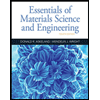 Essentials Of Materials Science And EngineeringEngineeringISBN:9781337385497Author:WRIGHT, Wendelin J.Publisher:Cengage,
Essentials Of Materials Science And EngineeringEngineeringISBN:9781337385497Author:WRIGHT, Wendelin J.Publisher:Cengage,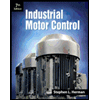 Industrial Motor ControlEngineeringISBN:9781133691808Author:Stephen HermanPublisher:Cengage Learning
Industrial Motor ControlEngineeringISBN:9781133691808Author:Stephen HermanPublisher:Cengage Learning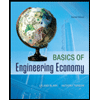 Basics Of Engineering EconomyEngineeringISBN:9780073376356Author:Leland Blank, Anthony TarquinPublisher:MCGRAW-HILL HIGHER EDUCATION
Basics Of Engineering EconomyEngineeringISBN:9780073376356Author:Leland Blank, Anthony TarquinPublisher:MCGRAW-HILL HIGHER EDUCATION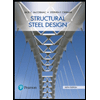 Structural Steel Design (6th Edition)EngineeringISBN:9780134589657Author:Jack C. McCormac, Stephen F. CsernakPublisher:PEARSON
Structural Steel Design (6th Edition)EngineeringISBN:9780134589657Author:Jack C. McCormac, Stephen F. CsernakPublisher:PEARSON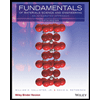 Fundamentals of Materials Science and Engineering...EngineeringISBN:9781119175483Author:William D. Callister Jr., David G. RethwischPublisher:WILEY
Fundamentals of Materials Science and Engineering...EngineeringISBN:9781119175483Author:William D. Callister Jr., David G. RethwischPublisher:WILEY

MATLAB: An Introduction with Applications
Engineering
ISBN:9781119256830
Author:Amos Gilat
Publisher:John Wiley & Sons Inc

Essentials Of Materials Science And Engineering
Engineering
ISBN:9781337385497
Author:WRIGHT, Wendelin J.
Publisher:Cengage,

Industrial Motor Control
Engineering
ISBN:9781133691808
Author:Stephen Herman
Publisher:Cengage Learning

Basics Of Engineering Economy
Engineering
ISBN:9780073376356
Author:Leland Blank, Anthony Tarquin
Publisher:MCGRAW-HILL HIGHER EDUCATION

Structural Steel Design (6th Edition)
Engineering
ISBN:9780134589657
Author:Jack C. McCormac, Stephen F. Csernak
Publisher:PEARSON

Fundamentals of Materials Science and Engineering...
Engineering
ISBN:9781119175483
Author:William D. Callister Jr., David G. Rethwisch
Publisher:WILEY